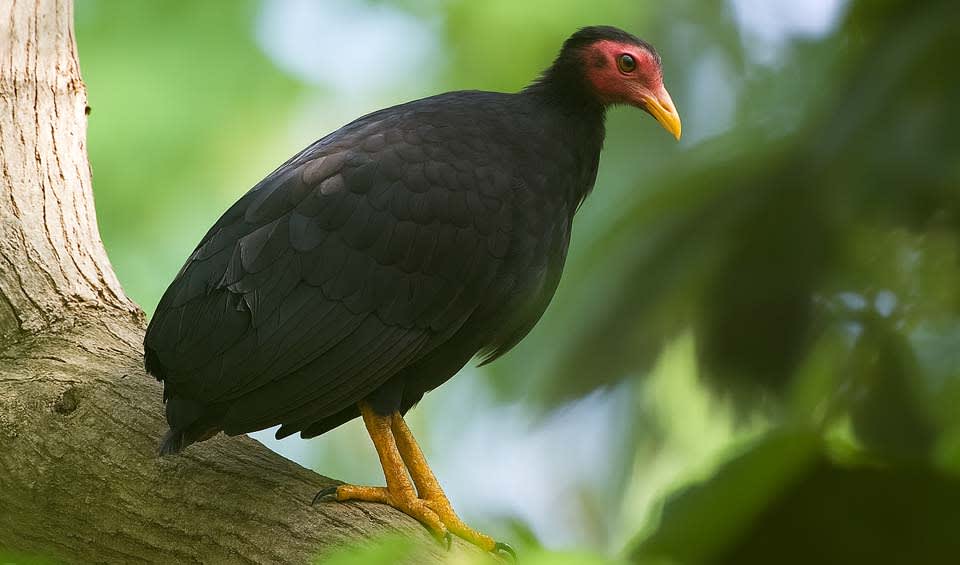A fascinating bird that’s a master of incubation without sitting on its eggs! Imagine a large, ground-dwelling bird about the size of a plump chicken. Unlike its brightly colored feathery cousins, the Vanuatu megapode sports a simpler look. Its body is cloaked in a dark, blackish-brown plumage with a hint of mystery about it. But don’t let its plain appearance fool you – this bird has a remarkable story to tell.
The most striking feature of the Vanuatu megapode isn’t its feathers but its impressive feet. These birds boast bright yellow legs and large, powerful feet, perfect for digging and scratching on the forest floor. Unlike most birds that build nests in trees, the Vanuatu megapode takes a completely different approach.
Here’s where things get interesting: the Vanuatu megapode is a champion excavator! They spend their days diligently digging massive mounds of soil, leaves, and other organic matter on the forest floor. These mounds can be quite impressive, sometimes reaching several meters in diameter and a meter high! But these aren’t just random piles of dirt – they’re elaborate incubators cleverly designed for raising chicks.
The Vanuatu megapode lays its eggs deep within these mounds. But unlike other birds that tirelessly sit on their eggs to keep them warm, the Vanuatu megapode takes a hands-off (or, should we say, wings-off) approach! The heat for incubating the eggs comes from the decomposing organic matter in the mound. It’s a form of natural geothermal heating powered by the forest itself!
Distribution
 Vanuatu
Vanuatu Official estimate
Official estimate
Anything we've missed?
Help us improve this page by suggesting edits. Glory never dies!
Suggest an editGet to know me
Terrestrial / Aquatic
Altricial / Precocial
Polygamous / Monogamous
Dimorphic (size) / Monomorphic
Active: Diurnal / Nocturnal
Social behavior: Solitary / Pack / Herd
Diet: Carnivore / Herbivore / Omnivore / Piscivorous / Insectivore
Migratory: Yes / No
Domesticated: Yes / No
Dangerous: Yes / No




